commentary Commentary
Commentary: It is high time for a Ministry on Ageing Issues
Such a ministry can bring into sharper focus the concerns, challenges and aspirations of seniors, says SUSS’ Dr Helen Ko.
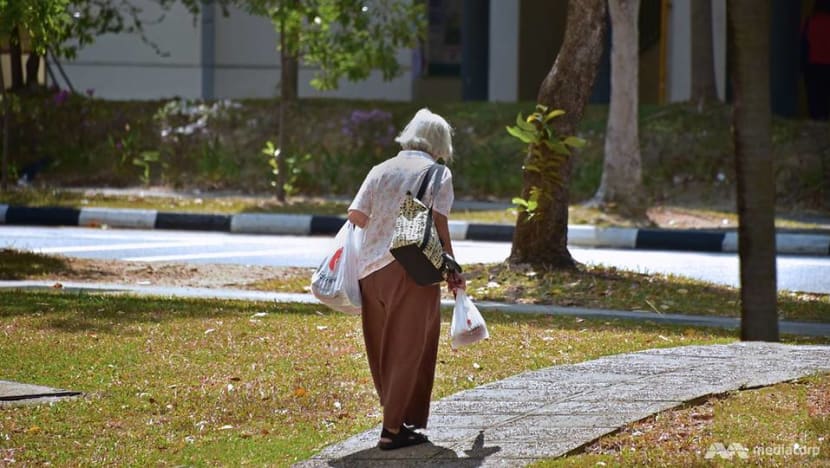
An elderly woman in Singapore. (File photo: CNA/Gaya Chandramohan)
SINGAPORE: Recently, Institute of Policy Studies senior research fellow Faizal Yahya proposed that in view of the incidence of ageism and the emerging challenges posed by technological disruptions, resulting in the displacement of many older workers, a new Ministry of Ageing, coordinating closely with the Manpower and Education Ministries, should be set up.
Indeed, the time is ripe for the creation of such a Ministry.
Today, the life expectancy in Singapore has risen to 84.79 years, from 76.1 years in 1990. By 2030, one in four Singaporeans will be aged 65 and above.
Singapore’s workforce will age rapidly. The median age is expected to rise from 40.6 in 2010 to 53.7 in 2050.
Expectations have also risen. A recent study revealed that today’s seniors aged 65 and above consider an amount of at least S$1,379 each month to be necessary to meet basic needs.
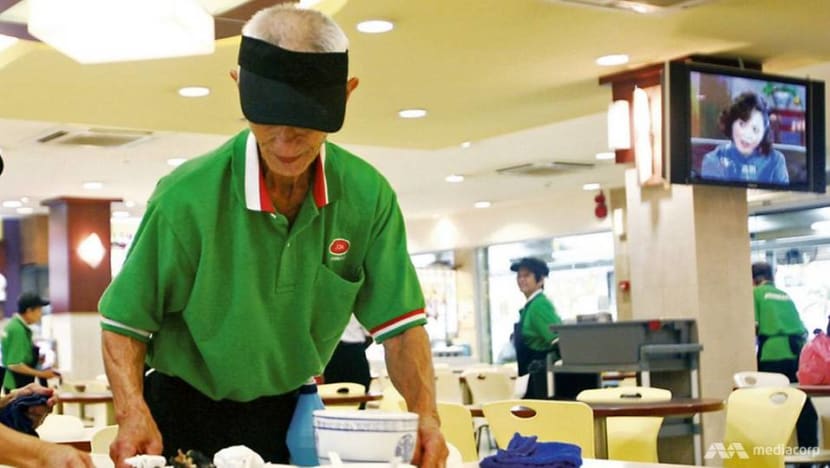
READ: If more work in old age, how relevant is the retirement age? A commentary
This figure includes a short break to the region, clothes for festivities, red packets during Chinese New Year, but not the costs of treatment for chronic conditions and major illnesses.
THREE PROFILES OF SENIORS
Beyond demographics and rising expectations, policymakers should be mindful seniors are a very diverse group, not least in terms of educational levels, preferences, capacities, capabilities, and life experiences. These individual differences increase with age.
The needs of our seniors straddle multiple ministries and meeting them requires a comprehensive and coordinated approach to give them autonomy and allow them to age-in-place.
Broadly, seniors can be classified into three groups, based on functional age - which is a person’s ability to perform tasks, such as bathing, dressing and eating.
This classification can be a guide when formulating policies and programmes for seniors.
The three groups are: The Go-Go seniors, the Go-Slow seniors and the No-Go seniors. While presented as distinct categories, in reality, they are a continuum and are often overlapping.
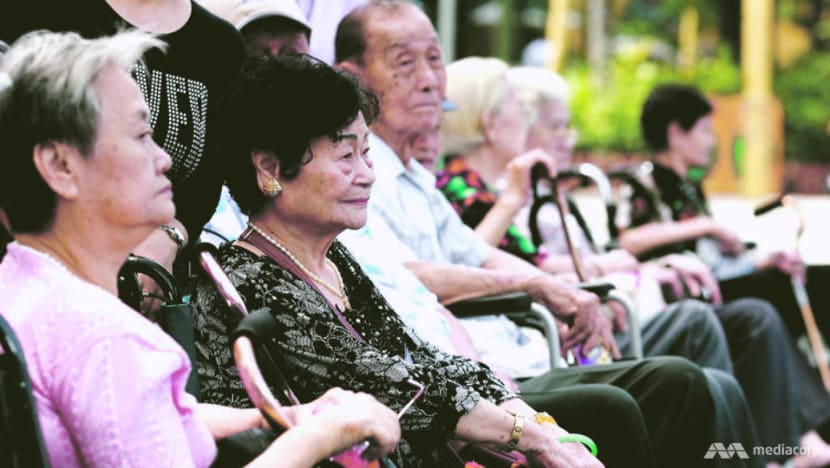
GO-GO SENIORS
This group, likely to be their 50s and 60s, is healthier, wealthier and more educated, compared to their predecessors from 20 years ago. In fact, with medical advances and healthy lifestyles, physically, some of these seniors may be as fit as those in their 30s or 40s.
At this life-stage, freed from the constraints of raising children and with fewer obligations to work, many may begin to engage in a variety of enrichment or learning programmes, leisure pursuits and recreational activities. Some wish to contribute back to the community by volunteering.
However, segments of this group may be a “sandwiched” generation. Due to late marriages, they may have children in their teens to support, as well as infirmed elderly parents or relatives to care for. Others may be required to care for grandchildren.
They may thus be experiencing substantial physical, emotional or financial stress. These pressures are set to increase, since by 2030, only two working adults aged 20 to 64 will support one senior aged 65 plus, suggesting an urgent need for more community services for caregivers.
Although this group are likely to be financially more well-to-do compared to previous cohorts, local surveys, such as the National Survey on Senior Citizens and the Tripartite Alliance for Fair and Progressive Employment Practices' research, reveal financial security and retirement adequacy remain a top concern for them, so many desire to remain gainfully employed.
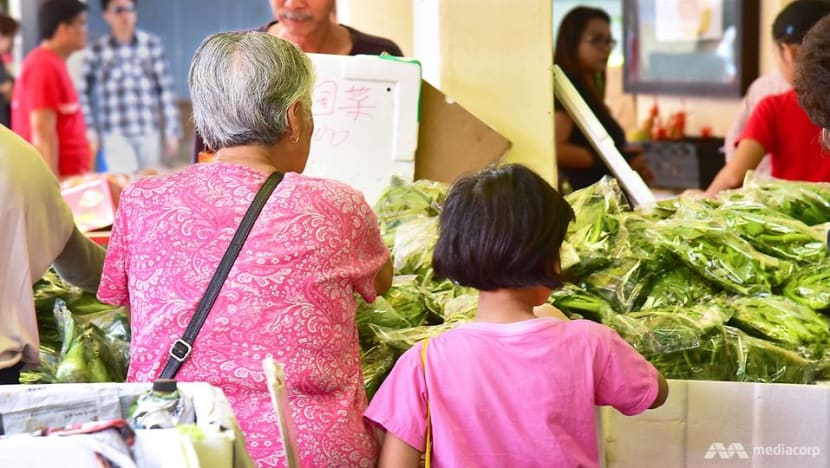
However, with rapid technological advancement in workplaces, they need to be reskilled and upskilled to remain employed.
READ: Living longer? Here’s what working for 60 years should look like. A commentary
As some seniors may have to juggle the demands of work and caregiving roles, flexible work arrangements, whether part-time work or tele-commuting, may be required.
The above implies the need for close coordination by the Ministries of Health, Social and Family Development, Manpower, Education, Communications and Information, Trade and Industry.
GO-SLOW SENIORS
The Go-Slow seniors are likely to between their late 60s to 80s. As chronic illnesses such as hypertension, diabetics and heart diseases, tend to increase with age, this group may be plagued by health conditions.
READ: Opening earlier and more - some senior care centres in Taiwan take service to new levels, a commentary
Compounded with age-associated sensory decrements, such as hearing impairment, as well as changes in posture and balance, various modifications to their environment will be needed so that they can access amenities such as markets, community clubs, clinics, hospitals.
Public transport must be adapted to accommodate their needs.
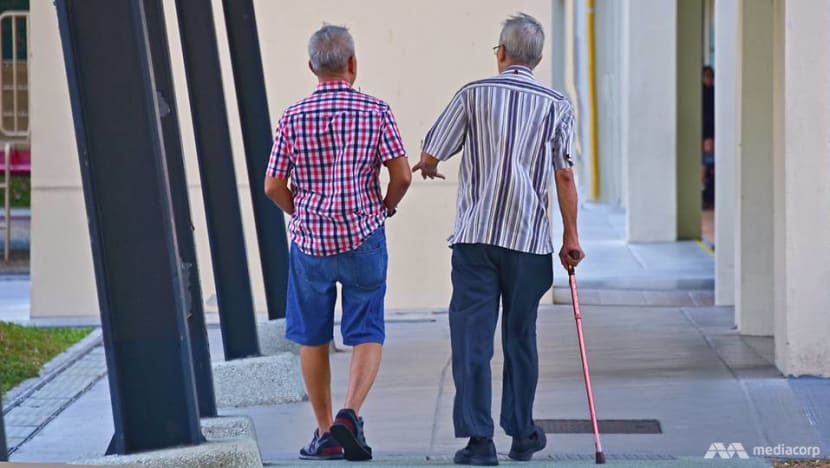
Public housing flats and their vicinities must be designed with elder-friendly features including ramps, railings, grab-bars. A variety of housing options, schemes and grants would be needed, given their financial constraints.
Many Ministries and Statutory Boards will have to collaborate to meet their needs, not least, the Ministry of National Development, and the Housing & Development Board and the Ministry of Transport.
NO-GO SENIORS
This final group comprises seniors with multiple care needs, who may be non-ambulant, bed-bound, or highly dependent on caregivers. They may reside in their own homes, nursing homes, or are often in hospitals.
Besides debilitating illnesses, such as stroke, late-stage cancer, they may be suffering from psychological disorders, such as dementia or depression.
They require a suite of support services: Home care, meal services, counselling, befriending, transportation, escort services for medical appointments, financial assistance, end-of-life care and other therapeutic interventions for themselves and their families.
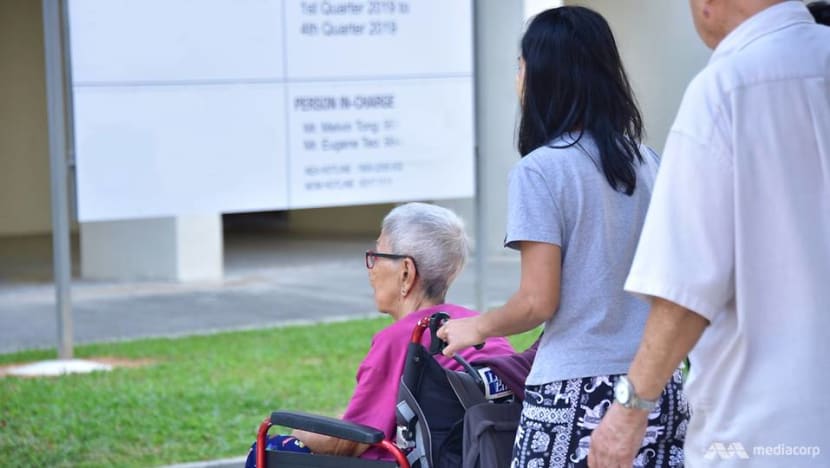
If they live in their own homes, their housing may require further modifications, more than for the Go-Slow group.
In Singapore, the suicide rates among the elderly have, for many years, been the highest across all age groups. Research has revealed that this group of seniors, with poor physical and mental health, are likely to be at higher risk of suicide.
For these reasons, close coordination amongst the Ministries of Health, Social and Family Development, National Development and Transport, is crucial.
IMPLICATIONS AND RECOMMENDATIONS
Ageing issues are multi-faceted and multi-dimensional, straddling multiple ministries. A multi-pronged, whole-of-government approach is required, to effectively deal with them.
While there have been efforts to target last-mile policy implementation and communications to seniors, such as through the establishment of a Silver Generation Office, and there have been piecemeal changes to set up departments in various ministries that focus on ageing, such as the Ageing Planning Office in the Ministry of Health, there is now huge demographic imperative to bring into sharper focus at the policymaking stage the challenges, concerns, issues and aspirations of our seniors.
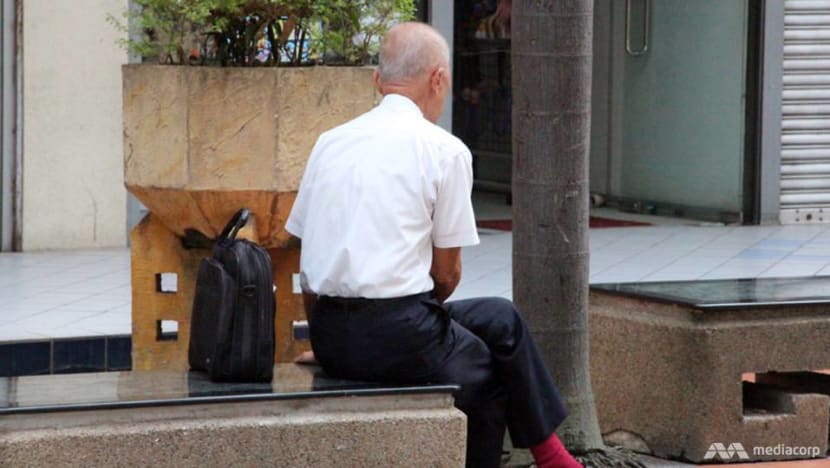
READ: Disease, isolation and neglect, the aged lives of quiet desperation you don't see, a commentary
In the same way that the Ministry of Culture, Community and Youth examines issues close to the hearts of young Singaporeans, more intellectual muscle must be brought to bear to look at the preoccupations of Singapore seniors holistically.
The proposed Ministry should not merely be a coordinating body on ageing, but should critically analyse the current and future ageing-related issues, and lead in formulating a coherent, comprehensive and forward-looking national policy on ageing, while working in concert with other ministries, agencies and civil society groups.
Such a policy should incorporate concrete legislative frameworks, programmes and schemes that benefit seniors as Singapore shifts into the next phase of her development.
Following from the above, the critical need for appropriately trained manpower who understands senior concerns cannot be over-emphasised. Gerontology, the multi-disciplinary study on ageing, should be a required course for all involved in the formulation of policies and programmes for seniors.
While population ageing has often been portrayed as a challenge and viewed negatively, it also presents many opportunities.
Silver industries such as senior tourism, devices and tools may be expanded. Indeed, by leveraging technology, such as artificial intelligence, robotics and virtual reality, the possibilities are boundless.
READ: Living longer? Here’s what working for 60 years should look like, a commentary
Exoskeletons could help seniors be more independent. Motion sensors and wearable technology could help seniors alert medical services to a fall or a heart attack.
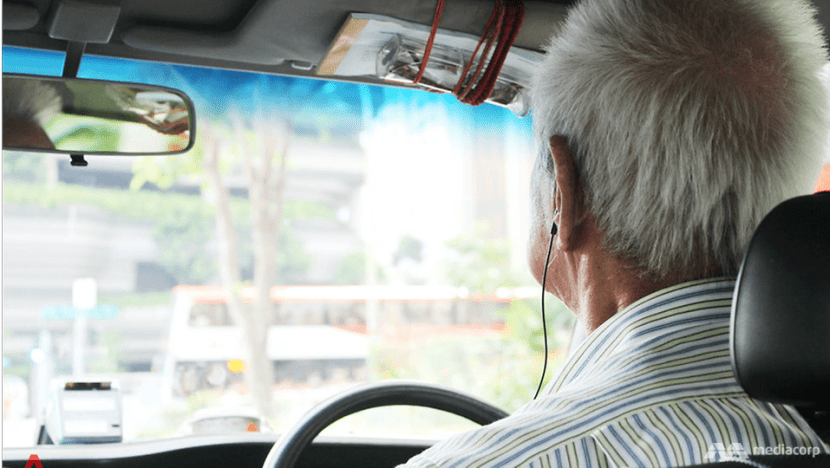
With improvements in health status, many seniors can remain in the workforce, and continue to contribute to the economy. Indeed, recent statistics has shown that Singaporeans have the longest healthy years. Their strengths and potentials should be proactively harnessed.
The ongoing rhetoric of the Government has been on building a caring and inclusive society, where no one gets left behind. Seniors are an integral part of society. Very soon, this group will constitute an extremely significant proportion of society.
Seniors should be valued for their intrinsic worth as human beings, have their concerns tackled in a more focused fashion and be recognised for their potential. The time is ripe to establish a Ministry on Ageing Issues.
Dr Helen Ko is Senior Lecturer at the Graduate Gerontology Programmes, Singapore University of Social Sciences and concurrently Executive Director, Beyond Age. She has served in the sector for over 30 years and has sat in various inter-ministerial committees on ageing population.














